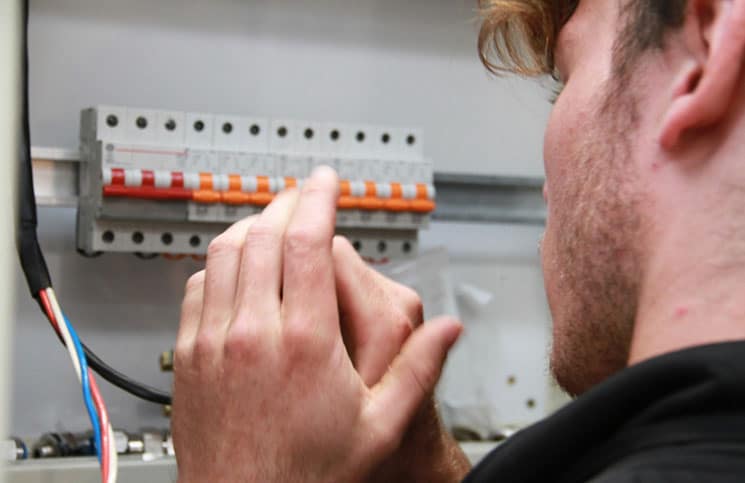By Jo Bailey
Maintaining the current regulations, standards and licensing of electricians is one of the current concerns of Master Electricians, says CEO Neville Simpson.
“We are aware that government, in particular MBIE is looking at making some changes to licensing of electricians. Although we are still working through the details with them, as an industry we need to be aware, and ensure we don’t sell ourselves short.”
Mr Simpson says there is a risk that the current skills shortage could open the way for licences to be compartmentalised to fit various aspects of a qualification. This could open the door for people who aren’t fully qualified to call themselves electricians.
“In the current climate with a large amount of work available and a lack of tradespeople, there are low barriers to starting a business which creates risk.”
“It takes around three-and-a-half years for an electrician to become qualified, which is around the same time as a university degree. We don’t want to see this qualification dumbed down or undermined by regulatory changes which could put the safety of both contractors and the general public at risk.”
At present, electricians in New Zealand must have a current practicing license, which is renewed every two years.
“Unfortunately a high percentage of the public aren’t aware this is a requirement, nor that work undertaken requires certification. Homeowners could be putting their properties and insurance at risk if work is completed by an unregistered electrician and is not appropriately signed off.”
Mr Simpson says people wanting to engage an electrician should seek out a member of Master Electricians.
“Any new members of Master Electricians have to undertake a quality assurance programme developed by our members before they can become branded Master Electricians.”
“This means they have to meet minimum thresholds on regulations, standards, insurances, workplace health and safety management systems, employment agreements, and various other aspects of business operation.”
Master Electricians are the only electricians backed by a $20,000 workmanship guarantee, providing further assurance to domestic consumers.
“Master Electricians members are the professionals of the electrical trade. With the organisational strength of Master Electricians behind them, using a member of Master Electricians provides a safeguard against sub standard workmanship and comfort to the consumer.”
Mr Simpson says awareness of the Master Electricians brand is growing.
“We’re getting quite a few requests for membership from electrical business owners who have been asked by the public if they are Master Electricians.”
Master Electricians has a long history that can be traced back as far as 1925 to the formation of the New Zealand Electrical Federation. Today the Association represents nearly 1100 electrical contracting businesses, which Mr Simpson estimates to be somewhere close to 60 percent of the total industry.
The Association has ten branches operating in a nationwide network of electrical businesses under the Master Electricians brand. It provides a wide range of services to members including industry representation, Quality Assurance certification, member rewards, workplace health and safety strategies, access to technical support on the job, business support in the office, and regional one-on-one support.
“As an Association we need to make sure we are relevant, and to do that we have to be seen to be advocating on the industry’s behalf. We’ve already been successful in lobbying for the retentions law change.”
Along with current concerns around the regulations, standards and licensing for electricians, other main issues facing the sector include the use of non-compliant product, and skills shortages.
Mr Simpson urges non-members, particularly younger electricians and business owners to join Master Electricians so the Association can continue its good work.
“Younger electricians must realise if they don’t support their industry association that advocates on their behalf, they suffer as a result. The more numbers we have the greater our strength, which enables us to provide these sorts of services on behalf of the industry.”



